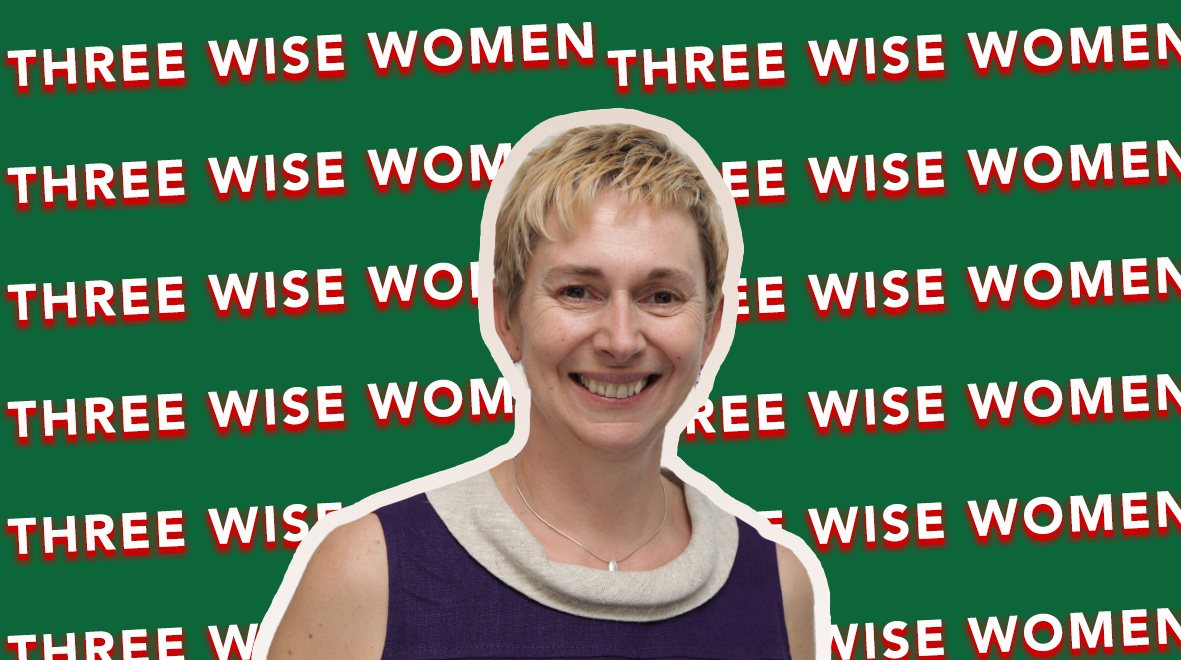
This festive period Three Wise Women from the Faculty of Medicine will be giving us the gift of wisdom.
As vaccines bring hope, Professor Helen Ward reflects on the emotions felt and lessons learned in a year confronting COVID-19.
What a strange year. For me, it has been full of contradictions. From one moment to the next I can feel sadness, frustration, anger but also pride and satisfaction. And guilt.
Sadness at the loss of life and the chronic ill-health that COVID-19 has brought, and for the loss of livelihoods and bleak futures for even more people. Frustration at the response of political leaders when vital decisions have been delayed, and anger that the pandemic has resulted in worsening social inequalities. Pride at my small part in the response, as an advocate for public health action when needed, a researcher co-leading one of the largest epidemiological studies (REACT), and an educator delivering a rapid online course to share the science of the COVID-19 response with over 100,000 learners. But also guilt that I have a secure and well-paid job that I can do safely from home, and that I have found research this year the most stimulating and satisfying of my career. Sometimes that enjoyment seems wrong.
My research career has focused on infectious disease epidemiology, particularly the control of HIV and sexually transmitted infections (STI), alongside teaching public and global health. I look back now and see how much of my career has been training for this pandemic challenge, and has taught me lessons that are very relevant for COVID-19. From my HIV and STI research and clinical work, I learned about the complexities of controlling these infections. Understanding these “social” diseases requires a range of scientific approaches from basic immunology through mathematical modelling to anthropology.
Lesson number one – we need multidisciplinary research
The early years of HIV we had no effective treatment and only condoms and behaviour change to reduce transmission. But actually, those interventions could be extremely effective, as our research with sex workers showed – it was perfectly possible to stay safe.
Lesson number two – community engagement
Non-pharmaceutical interventions (NPIs) are powerful ways of cutting SARS-CoV-2 transmission but require commitment and motivation from a lot of people, and that means effective community engagement and involvement. In early February we started to build an online course, “Science Matters, Let’s Talk about COVID-19”, which included a module on community engagement with lessons from HIV and Ebola. My colleagues in the Patient Experience Research Centre have worked tirelessly this year to make sure that communities are involved in and engaged with our research, shifting to online approaches and producing several rapid insight reports, and supporting innovative ways of working.
Lesson number three: tackling structural inequalities
Structural factors including racism and economic inequalities underpin the uneven burden of this pandemic, and we need to recognise and actively address them. The adoption of preventive behaviours, whether using condoms, wearing a mask or keeping a distance from people, not only requires knowledge and intention, but also opportunity and resource. In mid-March, we surveyed 2000 people in the UK and showed widespread willingness to adopt NPIs, but the ability to comply with them was lower in disadvantaged groups, including people from ethnic minority groups. Sadly, as we have documented in the REACT study, this has played out in the unequal burden of SARS-CoV-2 in terms of exposure to infection, which is highest in minority ethnic groups and key workers. Those with fewest resources have also experienced the most devastating consequences of lockdown.
Marvelling at the pace of scientific advance
Earlier this year, I was commissioned to write a letter to my post-lockdown self, to be opened in May 2021 (Guardian Weekend, 23 May 2020). Reflecting on the devastating death rate already experienced in the UK’s first wave, I wrote “but rather than despair, you will marvel, as I already do, at the pace of scientific advance in these early months. Surely some of this will have borne fruit. You will smile, either at my naive optimism, or with satisfaction that we have started to turn this around, as we did with HIV.”
Of course the reality is more complicated. I can indeed marvel at the amazing scientific advances, the vaccine already being rolled out, the improvements in diagnostics and treatments. But I can also despair that we have not kept people safe up to now, in part because of a failure to learn lessons and ensure that the response involves multidisciplinary working, community engagement and tackling structural inequalities. Let’s hope that these lessons are learned in relation to the vaccine programme.
At the moment, the pandemic is far from over, and while we can be optimistic that we are starting to acquire the tools needed to control it, there is a long way to go. For now, as we enter the holiday period, let’s make sure we stay safe, and find enjoyment without putting ourselves or others in danger.
Those most at risk will be the first to be vaccinated in the coming months, so with the beginning of an end in sight, now is the time to be patient, not to become one.
Wishing everyone a safe and relaxing holiday. I’m off to play with my new puppy…
Helen Ward is Professor of Public Health at Imperial’s School of Public Health.